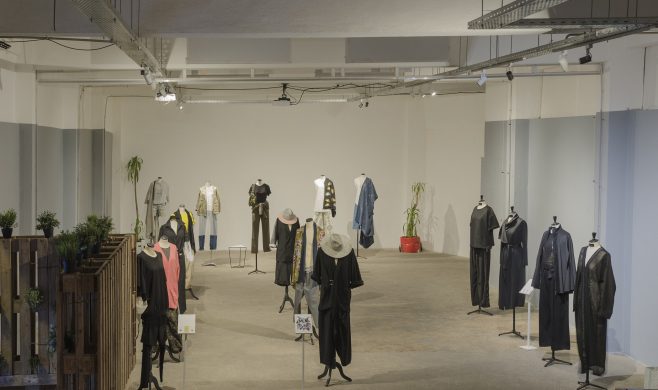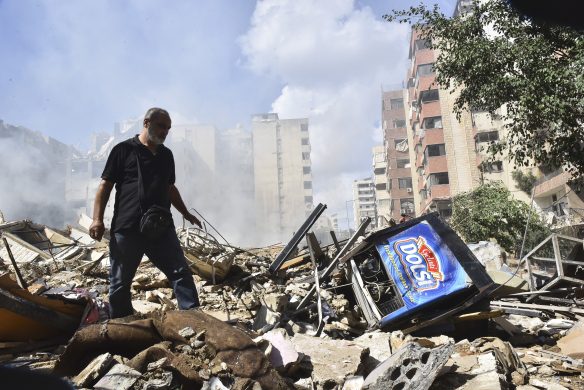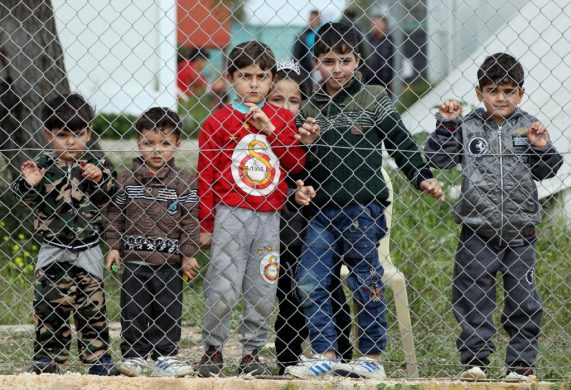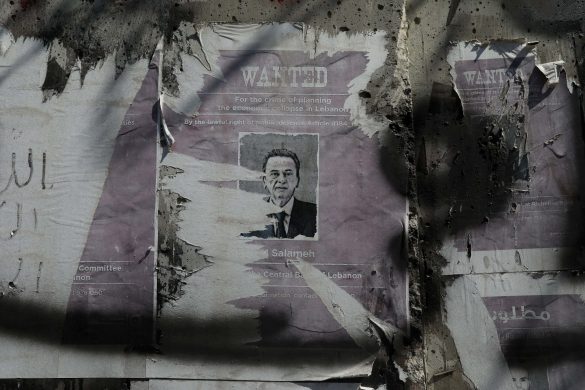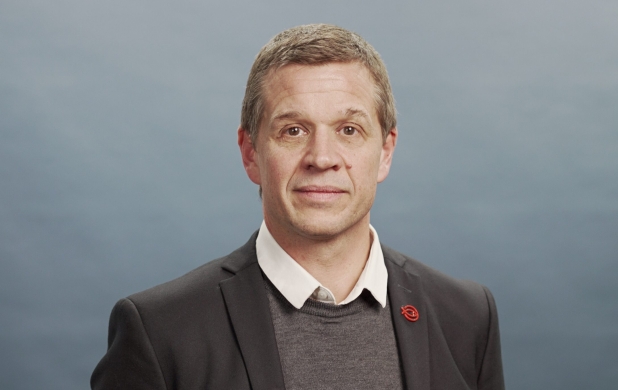Beirut Pride – Tro, håb og kærlighed
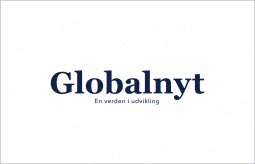
I anledning af Copenhagen Pride 2018 bringer Globalnyt temaet “Beirut Pride – Tro, håb og kærlighed”.
Her kan læseren møde manden bag Beirut Pride, Hadi Damien, og i en interviewserie på fire afsnit høre ham fortælle om fortiden, nutiden og fremtiden for Beirut Pride og LGBTQ+ i Libanon og regionen.
LGBTQ+ betyder “lesbian, gay, bisexual, transgender, queer” Plus-tegnet dækker over andre seksuelle identiteter.
Artikler i serien
Introduktion: En Pride er ikke bare en Pride (15.08.2018)
Afsnit 1: Hvordan det hele begyndte (16.08.2018)
Afsnit 2: Livet som LGBTIQ+ i Beirut (16.08.2018)
Afsnit 3: Beirut Pride 2018 – hvad sker der? (18.08.2018)
Afsnit 4: Tro, håb, kærlighed og nye vinde (18.08.2018)
Kulturguide: Libanons LGBT-scene (20.08.2018)
Capital of Lebanon, often dubbed the most liberal country of the Arab world, Beirut is a very heteroclite city, with areas ranging from over-the-top streets to deprived neighborhoods. With a basic command of English and/or French, you would be able to easily navigate the city. Speaking with your hands is also of great assistance. Beirut seems like a microsome of the world, with sharp contrasts, rounded angles, and generous happenings. Whether it is the car honking, the traffic, the electricity cuts, the pavements, the heat, the drinking, the parties, the outings, the crisis, everything is intense.
Speaking of LGBTIQ+ life in Beirut is manifold, and touches upon many aspects of life. The life of a Lebanese gay man in Beirut Lebanon is similar to that of any other Lebanese citizen based in Beirut, in addition to expressions of hate and discrimination based on our sexual orientation. I was born in 1989, and in the 90s and the 2000s, homosexuality was still a taboo, the Lebanese layman would be confusing homosexuals with perverts, pedophiles, prostitutes, drug addicts, effeminate men, and criminals. Quite a stereotype that talk shows and TV series reinforced with the profile they used to depict gay men.
This does not mean that a gay man cannot be feminine or a sex worker or a drug user or a pedophile or a criminal or a pervert whatever this means, but providing this stereotyped image as the only mainstream view of homosexuals cannot do good to anyone, especially to a young man who is opening up to life, especially to a society that is emerging from a confessional civil war. While mass media broadcasted a negative conditioning to the image of gay people in particular, religious authorities secured the background that cemented this perception.
Stor indflydelse til religiøse figurer
As the 1975–1990 civil war mainly opposed Christian groups to Muslim groups, the power of religious figures grew exponentially. In a situation of distress and struggling for survival, every religion considered and still considers itself to be a minority, thus operating with the logic of the minority. While Christian and Muslim sacred texts do not mention same-sex intercourse, the latter was deemed unnatural, as it does not yield progeny, and religious scriptures have been interpreted in a way to condemn same-sex sexual practices and individuals who indulge in them. Reverberating on the perception of masculinity and of femininity, both masculine women and feminine men have been linked to homosexual conduct. Shamed and frowned upon, they have been subjected to unpleasant remarks, and, sometimes, to physical bullying.
Oppressions that touch LGBTIQ+ in Lebanon are manifold, and depend on the social class, the education level, the professional status, the health condition, and so on. While being queer (or identifying as an LGBTIQ+ individual) is one part of our identity, we are often conditioned by our family environment, the education we receive at home and at school, our economical status, our religious inclination, the people around us, and so on.
Hvad er “unaturlig sex”?
Controversial Article 534 from the Lebanese Penal Code stipulates that “unnatural sex is punishable by up to one year in prison”. While courts rarely sanction by prison, this Article has been used to prosecute LGBTIQ+ people. While social stigmas and misconceptions about homosexuality persist, Lebanese courts have sided with the LGBTIQ+ community in four high-profile cases since 2009. The most recent ruling was handed down by Lebanese judge Rabih Maalouf on January 26, 2017. In the decision he said, “homosexuality is a personal choice, and not a punishable offense.” Maalouf’s ruling denies that this law applies to the LGBTIQ+ community, following three previous rulings that argued it was impossible to define what sexual acts are natural. Along with these court decisions, the Lebanese medical profession supports the LGBTIQ+ community.
The Lebanese Psychiatric Society stated that homosexuality is not a mental disorder and does not need to be treated in 2013 and called for the abolition of Article 534 in 2015. In 2012, the Lebanese Order of Physicians banned doctors from conducting the infamous “egg test,” which involves inserting a metal egg-shaped object into the rectum of suspected homosexuals. The bizarre test has been and is still used by some to “examine” whether someone has had anal sex. Any member of the order now faces disciplinary measures if they are found to be conducting the test. Lebanon’s Ministry of Justice echoed its support to the physician’s ban, asking public prosecutors to follow suit. With all of these developments over the past few years, some have speculated that Lebanon is on the path to decriminalize homosexuality.
A lot of venues are inclusive and LGBTIQ+ friendly. They range from medical centres, to a beauty salon, co-working spaces, cafés, bookstores, restaurants, malls, shops, clubs, bars, beaches and resorts. It is up to each management to define its rules and conditions regarding how “out” you are. LGBTIQ+ in Beirut is far from being ideal, but it’s very fun, especially when you are in a good place with good company.
Parade eller ikke parade
The first instalment of Beirut Pride happened in 2017. Its aim was to take the pulse of the LGBTIQ+ people in Beirut, and see to which extend they would be public about it. In this perspective, and considering a few persons would be in the streets, we planned a march for about a forty people. However, and as the week was going ahead, more and more persons were willing to join the march. Facing the increasing number of attendees, and lacking time to properly plan a bigger march and to get the necessary permits, we shifted the march into an outdoor public gathering where people were playing music and games, grilling meat and veggies, dancing and tanning.
For the second instalment of Beirut Pride in May 2018, a march was planned for Sunday 20 May, and we scheduled its announcement for the evening of Tuesday 15 May. However, and as we were finalising all the permits, I was detained on Monday 14 May, and instead of attending a final meeting for the march with the authorities on Tuesday 15 May, I was locked in a holding cell, awaiting interrogation. As the whole Beirut Pride events got suspended until May 20, the march did not take place. We tried to retrieve it, but the enthusiasm of people was already challenged. Many LGBTIQ+ individuals recommended we do not hold a big scale event for it not to be considered as provocation.
Dette er afsnit 2 af 4 af temaet “Beirut Pride – tro, håb og kærlighed”. De næste afsnit bringes i de kommende dage.

